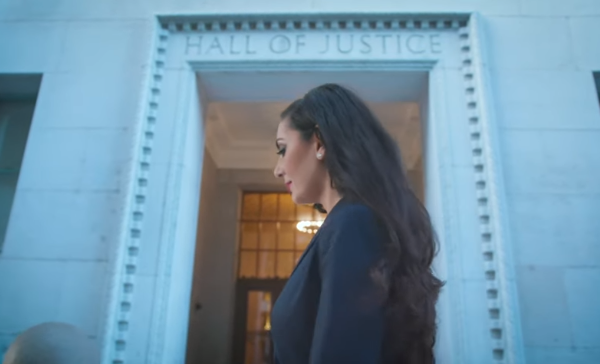Pursuant to California Vehicle Code §23152, it is illegal to drive a vehicle while under the influence of alcohol, or drugs. Under California law, a “drug” means a substance, which is not alcohol, that has the effect of impairing an individuals, muscular system, nervous system, or other brain function. In order to determine whether an individual has been impaired, the Prosecutor must show that the Defendant was not able to drive in the same manner as someone who wasn’t under the influence could; it is clear that this is an incredibly subjective test, which bodes well for competent counsel. As a practical matter, in the absence of paraphernalia it will be difficult for a Prosecutor to obtain a conviction under this section.
As mentioned above, a claim that you were driving under the influence of drugs (“DUID”) is an incredibly difficult set of facts to prove. It is true that operating a car requires control of both your physical and mental faculties, proving that drugs have impaired those faculties to the requisite point cannot be a truly objective analysis. Science has proven that the act of driving requires coordination both psychologically and cognitively at the same time. The cognitive functions allow an individual to identify and process the patterns of traffic, and even environmental cues, which may have an impact on the driver as well. Psychologically, experienced drivers are able to anticipate other driver’s actions and adapt rapidly and easily to avoid accidents. When everything is going well, it is to overlook the complexity of the instantaneous functions associated with operating a vehicle.
There are a number of things, that are not drugs, that can have a negative effect on someone’s ability to drive properly however. For example, studies have shown that conditions such as anxiety, depression, pain, sleep deprivation, aging, fatigue, passengers, radio, cell phones, other health conditions, glucose levels, as well as a bevy of other effects can have a negative impact on someone’s ability to drive properly.Further, illness and health conditions have the potential to reduce or impair someone’s ability to identify and react to alterations in the roadway, that would prove easy to others without the same condition. For example, cataracts could contribute to an accident, just as much as darkness, fog, hail, or snow. Further, it is not uncommon for people to suffer from the effects of withdrawal as it relates to common items such as caffeine, which can contribute to poor driving as well.
It is an unfortunate reality that law enforcement tends to blame any, and all, deficiencies a driver is experience on the presence of medicine; illegal and illegal. This remains an effect, notwithstanding tha massive amount of data suggesting that the presence of a substance does not prove, beyond a doubt, that an individual’s driving ability has been impaired; it is certainly not the cause of someone committing a minor traffic violation. With the legalization o marijuana for recreational purposes, there are likely to be more arrests based on DUID than before, it is important to keep in mind that just because marijuana is legal now, it does not mean the police will not find a way to accuse you of committing a crime
In a 2015 Gallup Poll, 70% of Americans believe that driving after consuming marijuana is a problem, and only 29% believed that it was a serious problem. In stark contrast, 79% of people polled found driving after to drinking to be a serious problem1. It is clear that marijuana has an impact on someone’s ability to drive, but it also clear it does not have the same impact as marijuana. A major issue to law enforcement pursuing charges of DUID based on marijuana is the issue of how they would measure the amount of marijuana present (presumably they would test for THC). This is a major point for defense attorneys. It is clear the breathalyzers and blood tests can be attacked for being unreliable and accurate, and those tests are the result of years of research and experimentation. Therefore, any tests that officers attempt to use to support a finding that the individual wa driving under the influence of drugs (DUID) will be even more susceptible to a valid defense theory that it was incorrect than they would be to support a DUI.
This is further exemplified by a Michigan law, which required a five-county pilot program for roadside testing people suspected of DUID2. As of the date of this article, the officers are not even sure what they are testing for; THC, or THC metabolites.
Further, the law and science seem to be at odds as it relates to the impact of marijuana on people’s ability to drive. In 2015, an article published by the Washington Post3 stated that study from the National Traffic Safety Administration4 found that people high on marijuana represented a significantly lower risk of being involved in a car crash than people who drank alcohol. An interesting discovery, after adjusting for various demographics, is that people who tested positive for marijuana, were no more likely to be involved in an accident than someone who had not used drugs or alcohol prior to driving. Indeed, current research on THC, suggests that marijuana isn’t all that impairing5. Ultimately, the law and science do not agree, and it will be incredibly difficult for an arresting officer to prove that you were in fact guilty of DUID.
1By Tia Ghose, Driving with a Marijuana High: How Dangerous Is It?, Live Science, July 6, 2015, http://www.livescience.com/51450-driving-on-marijuana-alcohol-dangerous.html.
2S.B. 434 and S.B. 207, now Public Acts 242 and 243.
3Christopher Ingraham, Stoned drivers are a lot safer than drunk ones, new federal data show, February 9, 2015, https://www.washingtonpost.com/news/wonk/wp/2015/02/09/stoned-drivers-are-a-lot-safer-than-drunk-ones-new-federal-data-show/.
4Richard P. Compton and Amy Berning, Drug and Alcohol Crash Risk, National Highway Traffic Safety Administration, February, 2015, http://www.nhtsa.gov/staticfiles/nti/pdf/812117-Drug_and_Alcohol_Crash_Risk.pdf. 5Schulze, Horst, et al., “DRUID (Driving under the Influence of Drugs, Alcohol and Medicines) Final Report: Work performed, main results and recommendations,” Project Funded by the European Commission under the Transport RTD Programme of the 6th Framework Program, Project No: TREN-05-FP6TR-S07.61320-518404-DRUID (Federal Highway Research Institute, Germany, Aug. 1, 2012), p. 84. http://www.druid-project.eu/Druid/EN/Dissemination/downloads_and_links/Final_Report.pdf.
You may be charged with driving under the influence of a drug (DUID) if you are stopped while the influence of any drug, including prescription medicines such as vicodin, any other kind of drug (cocaine or marijuana6), and over the counter drugs like sleeping pills can suffice as well.
In the event that you are stopped based on suspicion that you are under the influence of drugs, someone who is trained as a Field Recognition Expert, also known as an FRE, will probably question you. The Field Recognition Expert is specially trained to identify symptoms often associated with drug impairment. It should be noted, that thereis no predetermined “threshold” for when someone is impaired by the presence of drugs. This is yet another important distinction between DUID (no threshold), and DUI (0.08% BAC). This distinction is another reason why having skilled counsel on your side can result in the charge being dismissed.
WHAT ARE THE DEFENSES MY ATTORNEY CAN MAKE IF I AM CHARGED WITH DUID?
As mentioned throughout the article, there are several defenses a skilled attorney can raise if you are charged with a DUID. When you obtain your FREE consultation at Los Angeles DUI Attorney Law Firm, your attorney will explore all the facts surrounding your case, and begin building he most effective defense to the charges against you possible. In addition to skilled cross-examination (discussed further below), your attorney can raise a number of potent defenses including:
- The main evidence a Prosecutor can present against you in support of their claim that you are guilty of a DUID is the presence of a drug in your system at the time you were driving. Naturally, it is a far stretch to say that because drugs are in your blood stream, that you are impaired; many drugs stay in your system for several days after the effects have dissipated.
- Even iff you appeared to be impaired, that impairment can be caused by a number of external factors such as exhaustion, anxiety, or nervousness. This could result in a false belief that the person is under the influence.
- The methodology the officer utilized to store, collect, and analyze a blood or urine cample may have failed to comply with California Title 17, which sets forth the protocol for proper procedures. Failure to comply with the title may be a sufficient basis for kicking those results out. It will be incredibly difficult for the Prosecutor to prove that you were under the influence of drugs if they can’t introduce evidence that you were on drugs in the first place.
6See the conversation above as it relates to marijuana, as that is a difficult one to prove; it is unclear whether other drugs effect the driver.
It is important to understand that in an area of law, that has still not caught up with science, mostly because there is no consensus as to what causes impairment, and what does not cause impairment; most tests are unreliable. Because they are unreliable the tests can be attacked by a skilled attorney. A key point to keep in mind is that in most cases, the entire case will boil down to the testimony of the arresting officer and the FRE; they will be subject to cross-examination. Every attorney at Los Angeles DUI Attorney Law Firm has been thoroughly trained in the art of cross examination. When the Prosecutor puts the arresting officer or the FRE on the witness stand, your attorney will cross-examine them on every single item they claimed to have observed, challenging their memory, observations, and ultimately their credibility. Skilled attorneys have the best results in cases that are dependent almost entirely on the testimony of a handful of people. Contact an attorney from Los Angeles DUI Attorney Law Firm if you have been accused of DUID for a FREE consultation.
Contact our office today at 424-285-5400 for a FREE DUID consultation.




















